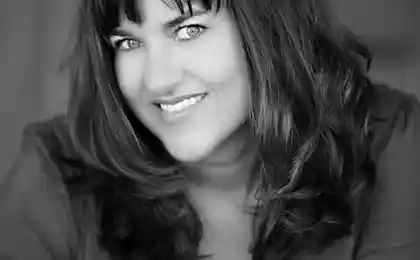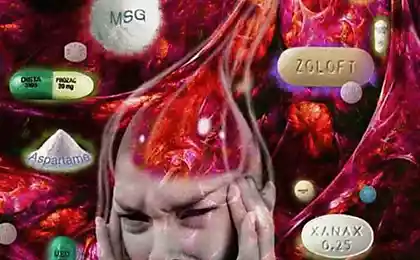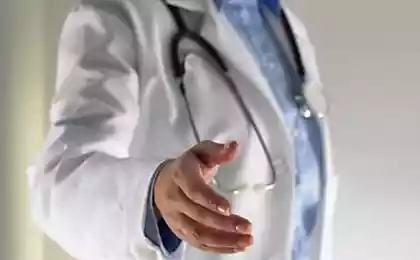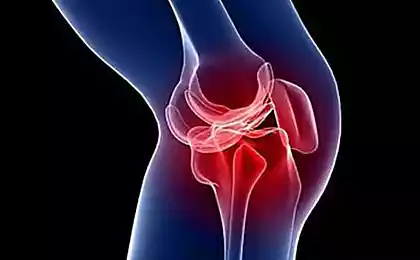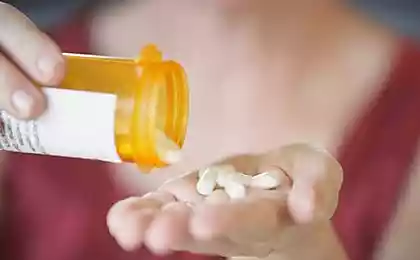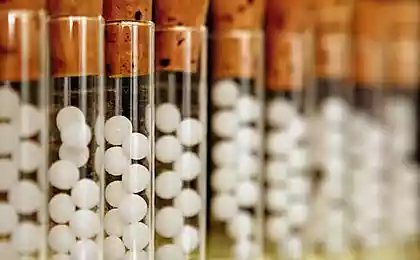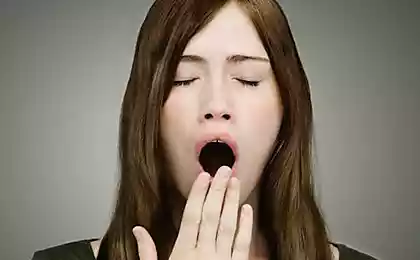922
What is a placebo
Placebo (lat. Placere - like, appreciated) denotes a drug known to possess no medicinal properties. In the XVIII century the word entered the medical lexicon and has come to mean "fake medicine»
According to medieval French tradition of funeral rites had completed a generous treat so-called "parasites» (parasites) - relatives, neighbors and passers-by, have joined the funeral procession. As the funeral service included the refrain of Psalm 114 (placebo Domino in regione vivorum - «to please the Lord in the land of the living"), for the mourners, beggars stuck the name "singing placebo", Socrates later to "placebo". In the XIII century the word spreads across Europe - but in the sense of "smoothie", "sycophant". As a medical term for it first appears in the reissue English dictionary Quincy in 1787. It is noteworthy that the Latin translation of Psalm 114 contains an error - in the Hebrew text says: "I will walk before the Lord" rather than "to please the Lord».
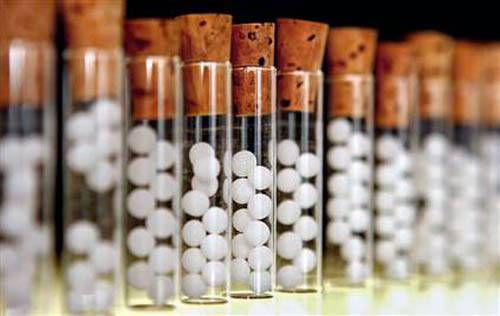
Brief History placebo
1801
British physician John Haygarth doubts the effectiveness of extremely popular at the time, "Perkins tractors" - metal wires made of a special alloy that are sold for a fabulous sum of five guineas and allegedly providing a positive magnetic effect on the body. Haygarth conducts healing sessions wooden sticks, passing them off as the real "Perkins tractors", and four out of five of his patients feel better.
1944
During the battle for southern Italy from the US military doctor Henry Beecher ends morphine. To soothe a wounded soldier, he gives an injection of saline solution for strong pain medication - oddly enough, the wounded said that he felt much better.
1955
Henry Beecher published in The Journal of American Medical Association classic article "Mighty placebo", which formulates the principle of the placebo-control: to eliminate the effect of auto-suggestion, in studies of any new medicine of the subjects should receive under the guise of this medication placebo.
1961
International Journal of Clinical and Experimental Medicine publishes articles Walter Kennedy "nocebo reaction", in which for the first time considered the negative effects of placebo. This phenomenon is named nocebo (from Lat. Nocere - harm).
1962
The US Congress adopts the amendment Kefauver-Harris to the federal law "On Food, Drug, and Cosmetic", according to which the manufacturer can not register a new medication without scientific evidence of its effectiveness - a placebo-controlled clinical trials are required.
1994
Surgeon Bruce Moseley Medical Center Department of Veterans Affairs in Houston operates 10 patients complaining of knee pain: five men held true for the joint operation, have five surgery is simulated - a doctor only introduces painkillers, makes an incision and then sutured. Six months later, all ten of report that the pain passed or began to disturb them much less often.
2008
Specialist in behavioral economics Dan Ariely of Duke University puts 82 volunteers exposed to electric current, giving them a placebo under the guise of an anesthetic. The first group of subjects reported that a single dose of the drug costs only 10 cents, and the other - it is worth 2, 5 dollar. In the second group the effect of "anesthetic" notice 85% in the first - 62%.
2010
Ted Kapchuk of Harvard Medical School gives 80 placebo patients with irritable colon syndrome and informs them that the placebo supposedly helps patients with this diagnosis, launching a "mechanism of self-healing." In most cases the improvement of health - so the placebo effect occurs even if the patient knows that a placebo - a placebo.
It was found that the ability of a placebo - affect the state of the body - not the same for different diseases. It is best to treat such ailments as phony as increased anxiety, depression, insomnia. The tablet of calcium gluconate, filed with the relevant explanations ("the new American facility is very expensive, but we give it to you free"), relieves insomnia better than proprietary sleeping pills. Equally effective than placebo therapy of psychosomatic disorders: asthma, eczema, dermatitis, etc.. N. One study compared two drugs to interdict chronic itching, the intensity of which the patients themselves were expressed in conventional points. Without treatment, the average intensity of itching was 50 points. Cyproheptadine reduced it to 28, trimeprazine - up to 35, and placebo - to 30. Statistical analysis revealed no significant differences between themselves any study medication, or between any of them and placebo.
Japanese researchers selected 57 students with severe allergic reactions to substances contained in the lacquer tree. Then the experimenters touched the left hand lacquer tree branch students, telling them that it is chestnut, and the right hand - chestnut branch, saying it lacquer tree; most of the subjects made a rash on the right. The authorship of this Internet meme bloggers credited Harvard Business Review editor Gardiner Morse; the primary source of information about the Japanese experiment in the scientific press is not detected until now.
9 scientific facts about the placebo
1. 20% of the placebo causes side effects that are specific to the drug, under the guise of a patient who received placebo.
2. Placebo affects children more than adults.
3. Placebo can be addictive: 40% of patients treated with placebo for five years, there has been a withdrawal.
4. The placebo effect is fixed positron emission tomography brain.
5. A case where the same placebo to induce asthma attacks and docked it at one and the same patient - depending on the allergen or drug he believed it inert substance.
6. 50% of doctors prescribe to their patients known to be useless drugs based on the placebo effect.
7. The placebo effect is subject to about 35% of people. The intensity of the placebo response is genetically predetermined.
8. The most striking placebo response observed in patients of dental clinics requiring anesthesia.
9. Placebo-controlled study of new drugs show that every year placebo effect becomes more pronounced (compared to the effect of drugs) ...
According to medieval French tradition of funeral rites had completed a generous treat so-called "parasites» (parasites) - relatives, neighbors and passers-by, have joined the funeral procession. As the funeral service included the refrain of Psalm 114 (placebo Domino in regione vivorum - «to please the Lord in the land of the living"), for the mourners, beggars stuck the name "singing placebo", Socrates later to "placebo". In the XIII century the word spreads across Europe - but in the sense of "smoothie", "sycophant". As a medical term for it first appears in the reissue English dictionary Quincy in 1787. It is noteworthy that the Latin translation of Psalm 114 contains an error - in the Hebrew text says: "I will walk before the Lord" rather than "to please the Lord».

Brief History placebo
1801
British physician John Haygarth doubts the effectiveness of extremely popular at the time, "Perkins tractors" - metal wires made of a special alloy that are sold for a fabulous sum of five guineas and allegedly providing a positive magnetic effect on the body. Haygarth conducts healing sessions wooden sticks, passing them off as the real "Perkins tractors", and four out of five of his patients feel better.
1944
During the battle for southern Italy from the US military doctor Henry Beecher ends morphine. To soothe a wounded soldier, he gives an injection of saline solution for strong pain medication - oddly enough, the wounded said that he felt much better.
1955
Henry Beecher published in The Journal of American Medical Association classic article "Mighty placebo", which formulates the principle of the placebo-control: to eliminate the effect of auto-suggestion, in studies of any new medicine of the subjects should receive under the guise of this medication placebo.
1961
International Journal of Clinical and Experimental Medicine publishes articles Walter Kennedy "nocebo reaction", in which for the first time considered the negative effects of placebo. This phenomenon is named nocebo (from Lat. Nocere - harm).
1962
The US Congress adopts the amendment Kefauver-Harris to the federal law "On Food, Drug, and Cosmetic", according to which the manufacturer can not register a new medication without scientific evidence of its effectiveness - a placebo-controlled clinical trials are required.
1994
Surgeon Bruce Moseley Medical Center Department of Veterans Affairs in Houston operates 10 patients complaining of knee pain: five men held true for the joint operation, have five surgery is simulated - a doctor only introduces painkillers, makes an incision and then sutured. Six months later, all ten of report that the pain passed or began to disturb them much less often.
2008
Specialist in behavioral economics Dan Ariely of Duke University puts 82 volunteers exposed to electric current, giving them a placebo under the guise of an anesthetic. The first group of subjects reported that a single dose of the drug costs only 10 cents, and the other - it is worth 2, 5 dollar. In the second group the effect of "anesthetic" notice 85% in the first - 62%.
2010
Ted Kapchuk of Harvard Medical School gives 80 placebo patients with irritable colon syndrome and informs them that the placebo supposedly helps patients with this diagnosis, launching a "mechanism of self-healing." In most cases the improvement of health - so the placebo effect occurs even if the patient knows that a placebo - a placebo.
It was found that the ability of a placebo - affect the state of the body - not the same for different diseases. It is best to treat such ailments as phony as increased anxiety, depression, insomnia. The tablet of calcium gluconate, filed with the relevant explanations ("the new American facility is very expensive, but we give it to you free"), relieves insomnia better than proprietary sleeping pills. Equally effective than placebo therapy of psychosomatic disorders: asthma, eczema, dermatitis, etc.. N. One study compared two drugs to interdict chronic itching, the intensity of which the patients themselves were expressed in conventional points. Without treatment, the average intensity of itching was 50 points. Cyproheptadine reduced it to 28, trimeprazine - up to 35, and placebo - to 30. Statistical analysis revealed no significant differences between themselves any study medication, or between any of them and placebo.
Japanese researchers selected 57 students with severe allergic reactions to substances contained in the lacquer tree. Then the experimenters touched the left hand lacquer tree branch students, telling them that it is chestnut, and the right hand - chestnut branch, saying it lacquer tree; most of the subjects made a rash on the right. The authorship of this Internet meme bloggers credited Harvard Business Review editor Gardiner Morse; the primary source of information about the Japanese experiment in the scientific press is not detected until now.
9 scientific facts about the placebo
1. 20% of the placebo causes side effects that are specific to the drug, under the guise of a patient who received placebo.
2. Placebo affects children more than adults.
3. Placebo can be addictive: 40% of patients treated with placebo for five years, there has been a withdrawal.
4. The placebo effect is fixed positron emission tomography brain.
5. A case where the same placebo to induce asthma attacks and docked it at one and the same patient - depending on the allergen or drug he believed it inert substance.
6. 50% of doctors prescribe to their patients known to be useless drugs based on the placebo effect.
7. The placebo effect is subject to about 35% of people. The intensity of the placebo response is genetically predetermined.
8. The most striking placebo response observed in patients of dental clinics requiring anesthesia.
9. Placebo-controlled study of new drugs show that every year placebo effect becomes more pronounced (compared to the effect of drugs) ...

